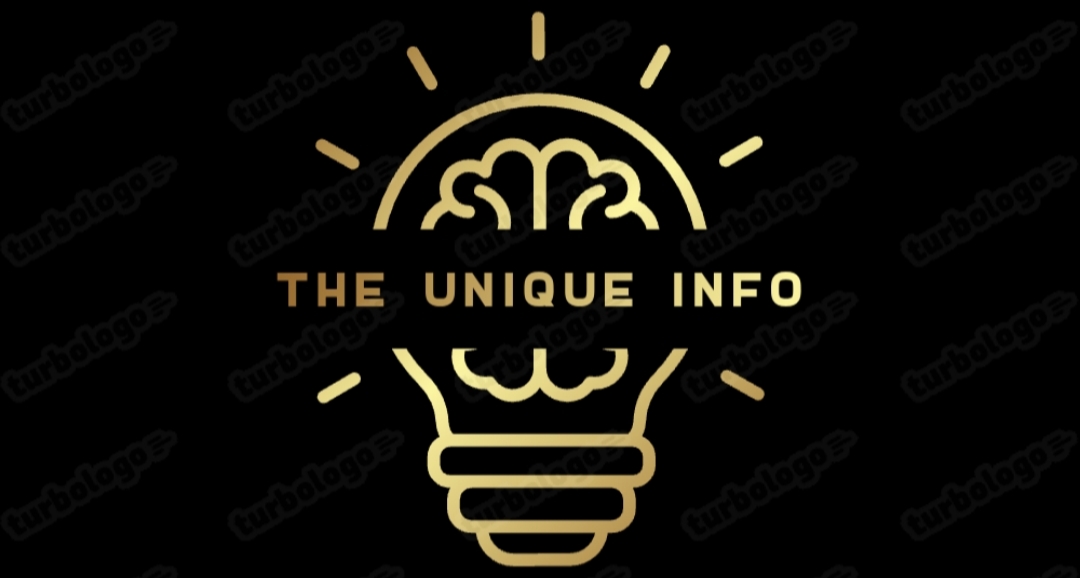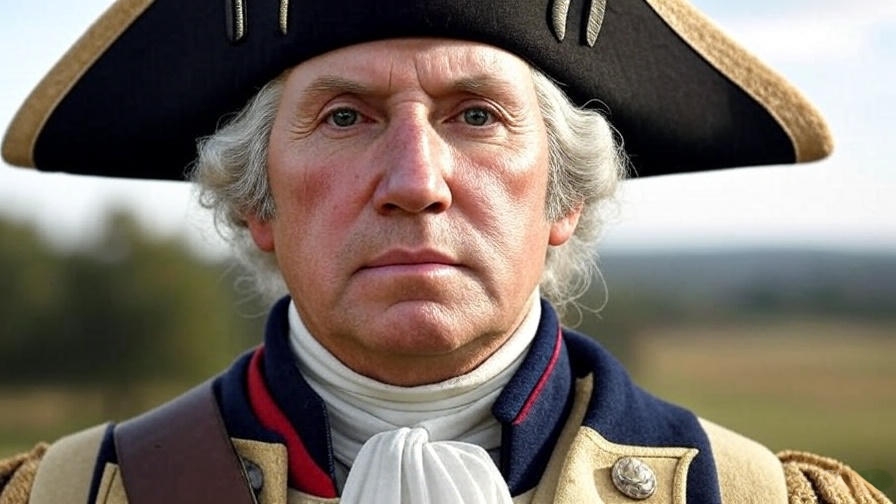George Washington, often hailed as the “Father of His Country,” was a key figure in the birth of the United States. Born on February 22, 1732, in Westmoreland County, Virginia, his leadership as a military commander and the first U.S. President shaped a new nation. His life story—filled with courage, humility, and vision—continues to inspire people globally. This 2000-word blog article dives into Washington’s journey, his contributions to American independence, his presidency, and his enduring legacy, written in a simple and organized manner for all audiences while adhering to Google blogging guidelines, including avoiding copyrighted content.
𝗪𝗵𝗼 𝗪𝗮𝘀 𝗚𝗲𝗼𝗿𝗴𝗲 𝗪𝗮𝘀𝗵𝗶𝗻𝗴𝘁𝗼𝗻?
George Washington was a farmer, soldier, and statesman who became a symbol of American freedom. Raised on a plantation after his father’s death, he learned surveying as a teenager, exploring Virginia’s wilderness. With little formal education, he relied on practical skills and determination. In 1759, he married Martha Dandridge Custis, a wealthy widow, which brought him financial stability and a stepfamily. Washington lived simply, often wearing homespun clothes, and prioritized duty over personal gain. He passed away on December 14, 1799, but his influence grew stronger after his death, cementing his status as a national icon.
𝗘𝗮𝗿𝗹𝘆 𝗟𝗶𝗳𝗲 𝗮𝗻𝗱 𝗠𝗶𝗹𝗶𝘁𝗮𝗿𝘆 𝗕𝗲𝗴𝗶𝗻𝗻𝗶𝗻𝗴𝘀
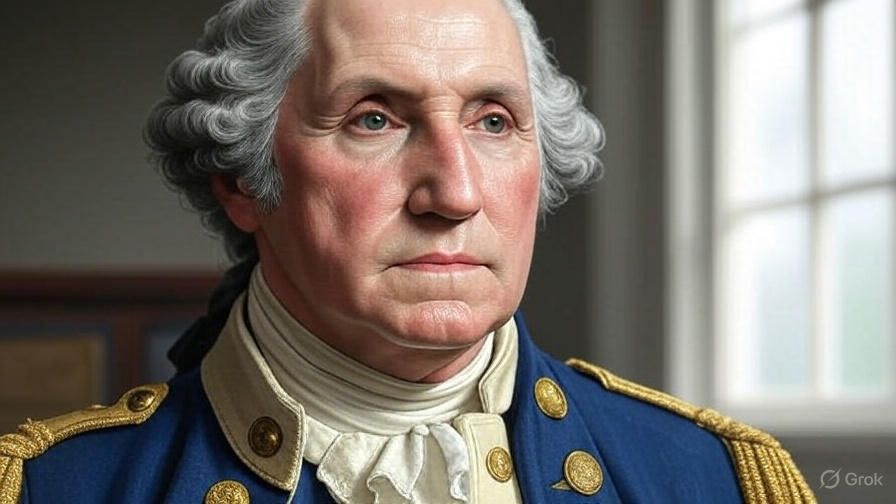
Washington’s early experiences laid the groundwork for his leadership. Growing up under his mother, Mary Ball Washington’s care, he worked hard to support his family. At 16, he became a surveyor, mastering land measurement, which built his resilience and knowledge of the terrain. His military career started during the French and Indian War (1754–1763), a conflict between Britain and France over North American land.
• First Leadership Role: In 1754, at age 22, Washington commanded a Virginia militia. A skirmish at Jumonville Glen, where he led an attack, unintentionally sparked the war, marking his early military involvement.
• Learning from Defeat: He faced setbacks, like surrendering at Fort Necessity, but these experiences taught him strategy and the value of discipline.
These early lessons shaped his approach to leadership, emphasizing preparation and perseverance, skills he later applied during the Revolutionary War.
𝗧𝗵𝗲 𝗥𝗲𝘃𝗼𝗹𝘂𝘁𝗶𝗼𝗻𝗮𝗿𝘆 𝗪𝗮𝗿: 𝗟𝗲𝗮𝗱𝗶𝗻𝗴 𝘁𝗼 𝗜𝗻𝗱𝗲𝗽𝗲𝗻𝗱𝗲𝗻𝗰𝗲
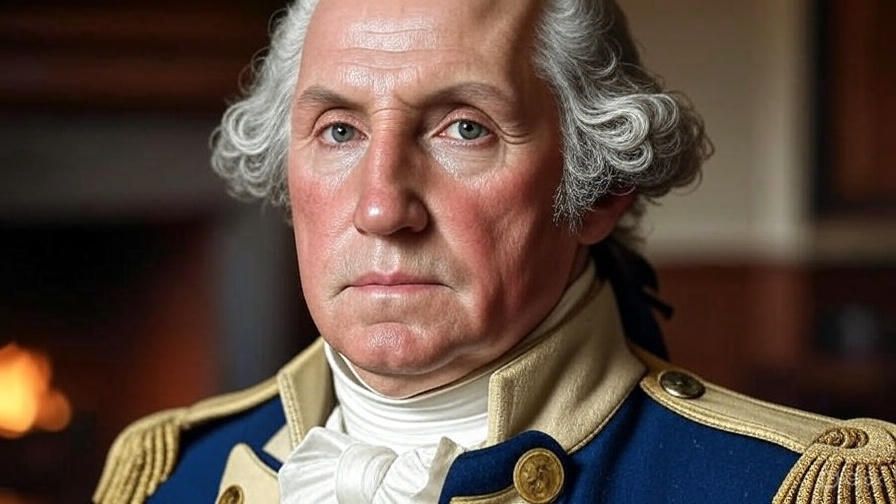
Washington’s most defining role was as Commander-in-Chief of the Continental Army during the American Revolution (1775–1783). The colonies rebelled against British rule due to oppressive taxes, like the Stamp Act, and lack of representation in Parliament. Washington’s leadership transformed a disorganized group into a force that won independence.
𝗞𝗲𝘆 𝗠𝗼𝗺𝗲𝗻𝘁𝘀:
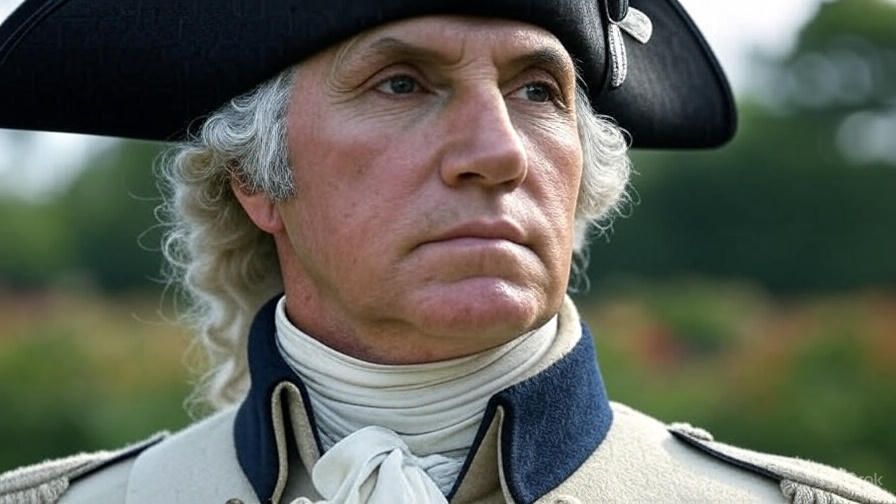
𝗔𝘀𝘀𝘂𝗺𝗶𝗻𝗴 𝗖𝗼𝗺𝗺𝗮𝗻𝗱 (𝟭𝟳𝟳𝟱):
Chosen by the Continental Congress, Washington took charge of an untrained army. He introduced strict drills and personally visited camps to boost morale.
Example: At Valley Forge (1777–1778), he led troops through a brutal winter, teaching them resilience despite shortages of food and clothing.
𝗖𝗿𝗼𝘀𝘀𝗶𝗻𝗴 𝘁𝗵𝗲 𝗗𝗲𝗹𝗮𝘄𝗮𝗿𝗲 (𝟭𝟳𝟳𝟲):
On Christmas night, Washington led a daring crossing of the icy Delaware River, attacking Hessian troops in Trenton, New Jersey. This surprise move lifted spirits.
Outcome: Followed by a win at Princeton, these victories shifted the war’s momentum toward the colonists.
𝗦𝗶𝗲𝗴𝗲 𝗼𝗳 𝗬𝗼𝗿𝗸𝘁𝗼𝘄𝗻 (𝟭𝟳𝟴𝟭):
• With French allies under General Rochambeau, Washington trapped British General Cornwallis at Yorktown, Virginia. The British surrender ended major combat.
• Outcome: The Treaty of Paris (1783) formally recognized the United States as an independent nation.
Washington’s ability to unite diverse colonies, adapt to challenges, and maintain integrity—refusing to exploit his power—earned him widespread respect.
𝗧𝗿𝗮𝗻𝘀𝗶𝘁𝗶𝗼𝗻 𝘁𝗼 𝗖𝗶𝘃𝗶𝗹𝗶𝗮𝗻 𝗟𝗶𝗳𝗲
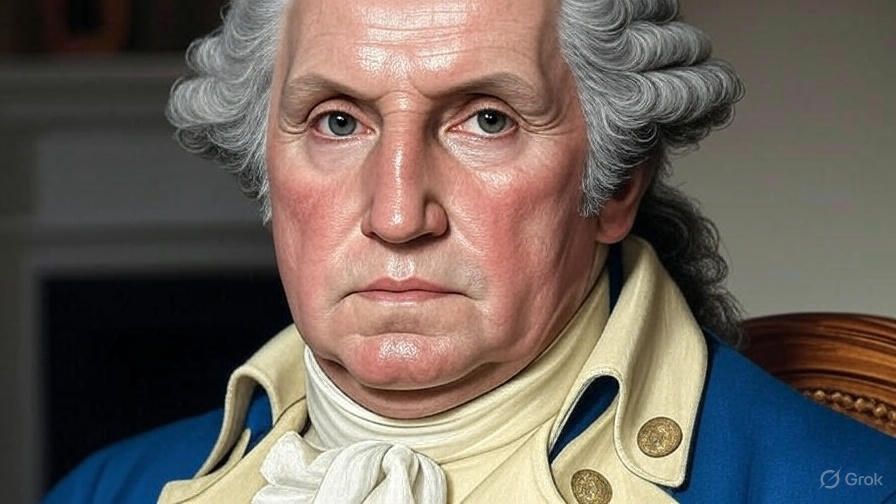
After the war, Washington retired to Mount Vernon in 1783, eager to farm and live quietly. However, the new nation struggled under the Articles of Confederation, which lacked a strong central government to handle debts or conflicts. Washington supported the Constitutional Convention in Philadelphia (1787), where delegates crafted the U.S. Constitution.
• Influence at the Convention: Though he rarely spoke, his presence as a revered leader encouraged compromise, leading to the Constitution’s approval.
• Reluctant Service: He preferred private life but agreed to lead when needed, reflecting his dedication to national unity.
This period showcased his belief in a government by and for the people, setting a model for future leaders.
𝗣𝗿𝗲𝘀𝗶𝗱𝗲𝗻𝗰𝘆: 𝗦𝗵𝗮𝗽𝗶𝗻𝗴 𝗮 𝗡𝗲𝘄 𝗡𝗮𝘁𝗶𝗼𝗻
Elected as the first U.S. President in 1789, Washington served two terms (1789–1797). With no precedent to follow, he shaped the presidency through trial and error, leaving a lasting impact.
𝗠𝗮𝗷𝗼𝗿 𝗔𝗰𝗵𝗶𝗲𝘃𝗲𝗺𝗲𝗻𝘁𝘀:
𝗦𝗲𝘁𝘁𝗶𝗻𝗴 𝗣𝗿𝗲𝗰𝗲𝗱𝗲𝗻𝘁𝘀:
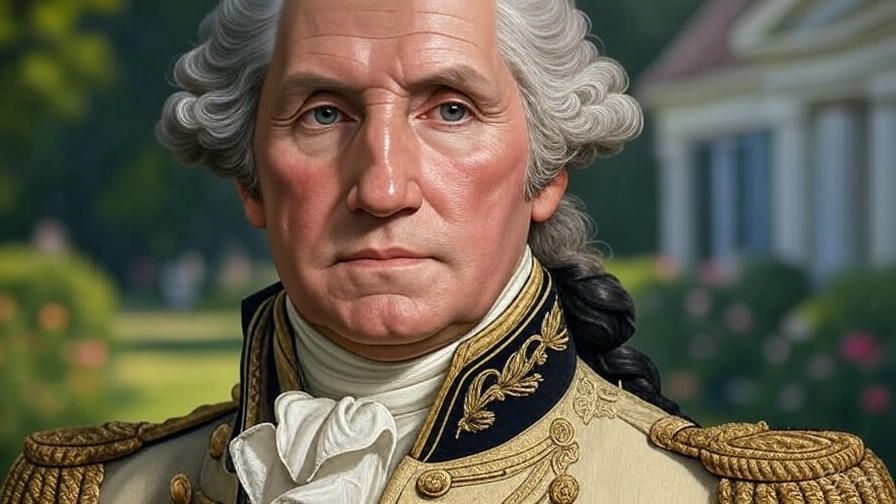
• He established the presidential cabinet, appointing secretaries like Thomas Jefferson (State) and Alexander Hamilton (Treasury) for advice.
• He limited himself to two terms, a tradition later enshrined in the 22nd Amendment, rejecting a king-like role.
𝗘𝗰𝗼𝗻𝗼𝗺𝗶𝗰 𝗙𝗼𝘂𝗻𝗱𝗮𝘁𝗶𝗼𝗻:
• Washington backed Hamilton’s plan to pay off Revolutionary War debts and create a national bank, stabilizing the economy.
• Example: The First Bank of the United States (1791) became a cornerstone of financial growth.
𝗡𝗲𝘂𝘁𝗿𝗮𝗹 𝗙𝗼𝗿𝗲𝗶𝗴𝗻 𝗣𝗼𝗹𝗶𝗰𝘆:
• During the war between Britain and France, he issued the Neutrality Proclamation (1793), keeping the U.S. out of foreign conflicts.
• Outcome: This allowed the young nation to focus on internal development.
𝗠𝗮𝗶𝗻𝘁𝗮𝗶𝗻𝗶𝗻𝗴 𝗢𝗿𝗱𝗲𝗿:
• The Whiskey Rebellion (1794) saw farmers protest a tax. Washington led a militia to quell the uprising, reinforcing federal authority.
• Lesson: He showed strength without excessive violence, balancing power and mercy.
Washington’s steady hand navigated political divisions, from Federalists to Anti-Federalists, ensuring the nation’s early stability.
𝗣𝗲𝗿𝘀𝗼𝗻𝗮𝗹 𝗧𝗿𝗮𝗶𝘁𝘀 𝗮𝗻𝗱 𝗟𝗲𝗮𝗱𝗲𝗿𝘀𝗵𝗶𝗽 𝗦𝘁𝘆𝗹𝗲
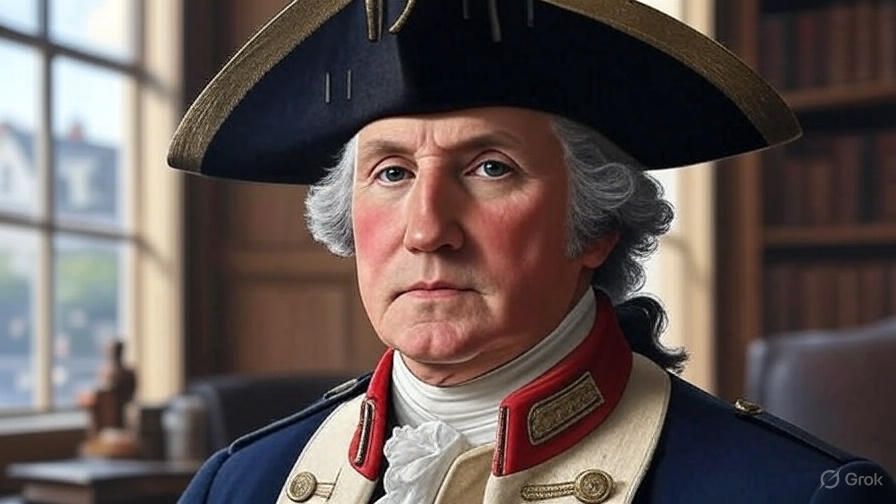
Washington’s character was central to his success. He was:
• Humble: He declined grand titles and returned to private life after his presidency.
• Disciplined: His military background and farm management reflected his structured approach.
• Forward-Thinking: He advocated for infrastructure like roads and canals to connect the nation.
His Farewell Address (1796) warned against political factions and foreign entanglements, offering wisdom still relevant today. This mix of modesty and vision made him a unifying leader.
𝗟𝗲𝗴𝗮𝗰𝘆 𝗮𝗻𝗱 𝗜𝗺𝗽𝗮𝗰𝘁
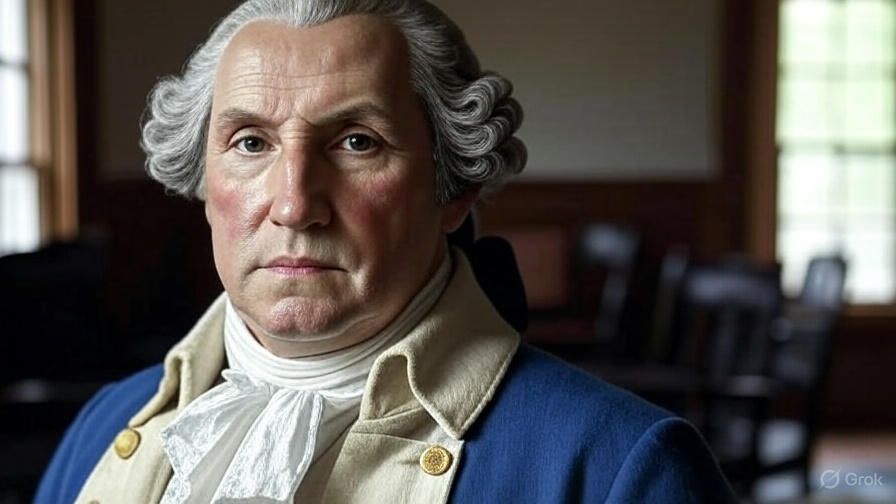
Washington’s legacy resonates widely:
• National Icon: His image adorns the U.S. dollar and the Washington Monument, while Washington, D.C., honors his name.
• Inspiration for Leaders: Figures like Abraham Lincoln and modern leaders cite his servant leadership as a model.
• Global Reach: His voluntary exit from power influenced democratic movements, including India’s independence under Gandhi.
His choice to step down after two terms established a democratic norm, contrasting with autocratic rulers elsewhere.
𝗖𝗵𝗮𝗹𝗹𝗲𝗻𝗴𝗲𝘀 𝗮𝗻𝗱 𝗖𝗿𝗶𝘁𝗶𝗰𝗶𝘀𝗺𝘀
Washington faced criticism despite his achievements. As a plantation owner, he enslaved over 300 people at Mount Vernon, a stark contrast to his freedom ideals. He provided for their freedom in his will after Martha’s death, but this was a late decision. Historians note his era’s acceptance of slavery may have limited his perspective. Militarily, some criticized his early losses, though his persistence proved decisive.
𝗛𝗼𝘄 𝗪𝗮𝘀𝗵𝗶𝗻𝗴𝘁𝗼𝗻’𝘀 𝗟𝗲𝘀𝘀𝗼𝗻𝘀 𝗔𝗽𝗽𝗹𝘆 𝗧𝗼𝗱𝗮𝘆
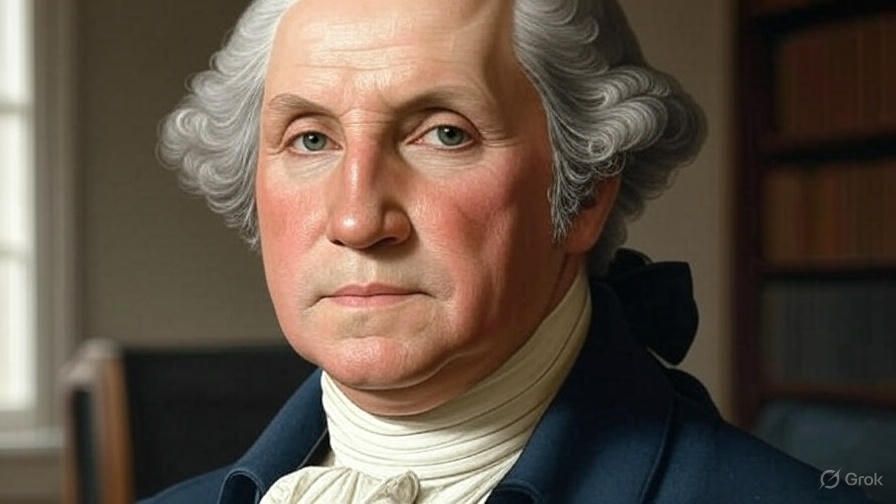
In 2025, Washington’s principles remain relevant:
• Unity in Diversity: His efforts to unite colonies can guide today’s divided societies.
• Leadership with Purpose: Leaders can prioritize public good over personal ambition, as he did.
• Peaceful Transitions: His voluntary retirement models democratic stability.
• Learning from History: Visiting Mount Vernon or reading his writings (public domain via the Library of Congress) can inspire personal growth.
𝗘𝘅𝗽𝗹𝗼𝗿𝗶𝗻𝗴 𝗪𝗮𝘀𝗵𝗶𝗻𝗴𝘁𝗼𝗻’𝘀 𝗟𝗲𝗴𝗮𝗰𝘆
To connect with his story:
• Mount Vernon: Open daily, this estate offers tours of his home and grave.
• Washington, D.C.: The National Museum of American History features artifacts like his war tent.
• Resources: Read public-domain works like his letters or watch documentaries like Washington (2020) for insights.
𝗖𝗼𝗻𝗰𝗹𝘂𝘀𝗶𝗼𝗻
George Washington’s role in America’s birth was transformative. From leading the Revolutionary War to defining the presidency, he built a nation on unity, sacrifice, and democracy. His flaws, such as his stance on slavery, remind us he was human, yet his vision endures. In 2025, as the U.S. and the world face new challenges, Washington’s lessons of leadership and peace offer guidance. His life proves that dedication and integrity can shape a nation, making him a timeless inspiration for all.
